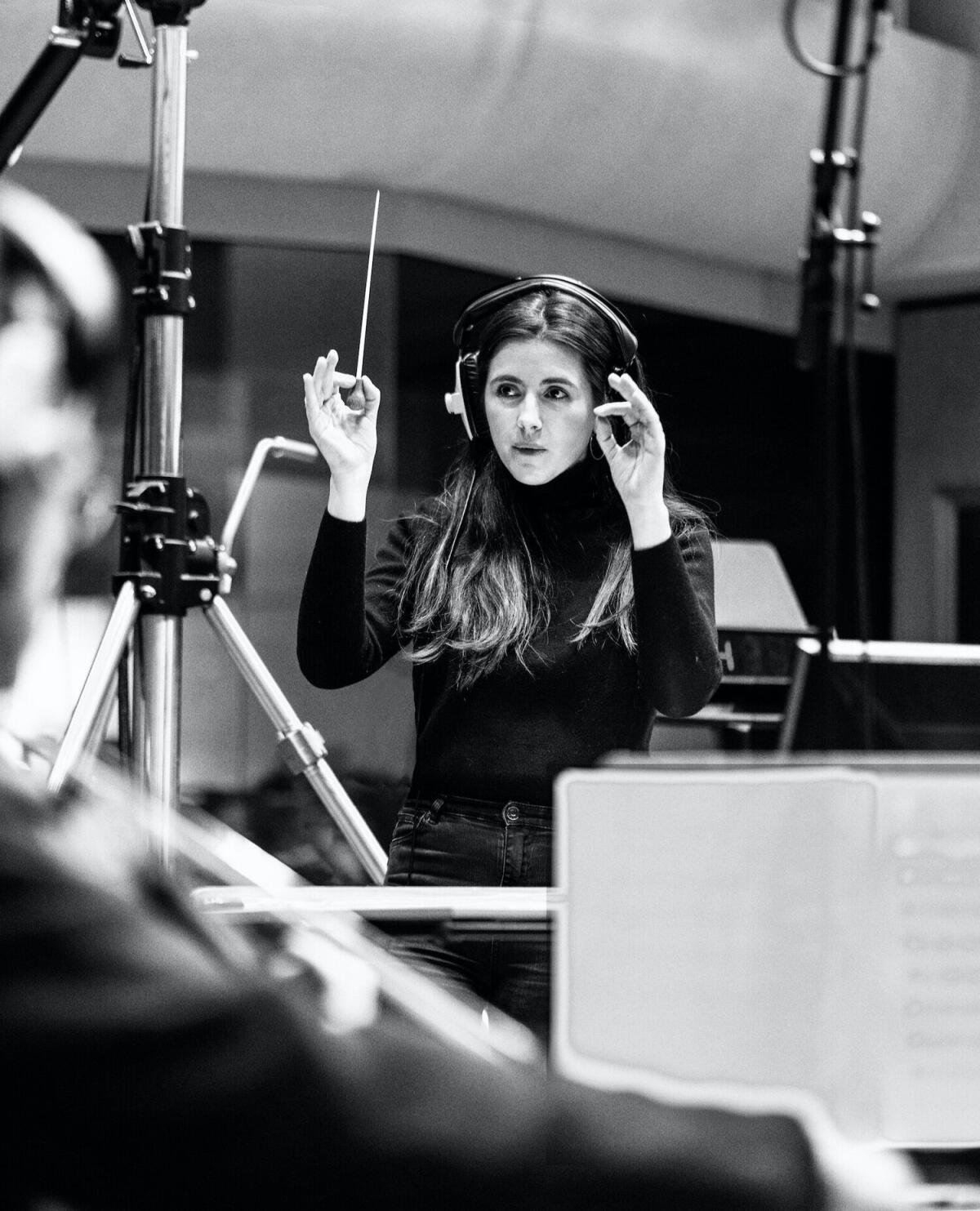How Nordic folk instruments ā and a touch of the otherworldy ā put pep in Lokiās step

Amid all his witty agitations and narcissistic machinations, Marvelās Loki, as played by Tom Hiddleston, helped his eponymous Disney+ series land as the most watched of Marvel Studiosā freshman television lineup. British composer Natalie Holt created āLokiāsā musical universe, vibing it in a world of Nordic folk instruments (Hardanger fiddle and nyckelharpa), mid-century Moog synthesizer, a 32-person Hungarian choir and the otherworldly theremin giving the God of Mischief the perfect sounds to envelop his time adventure. A violinist, Holt recently finished scoring Disney+ās āObi-Wan Kenobiā and is at work on āLokiā Season 2, now filming in London.
Which theme did you create first, Lokiās or the Time Variance Authorityās? Which did you pitch in your meeting to get the job?
It was Lokiās. They were interviewing lots of composers. Iād seen some of the Thor films and I knew Loki, the character, as he was portrayed, so I had an access to what the performance was going to be like, which doesnāt always happen. I thought it should have flourish and drama, and Iād talked about the tone palette with the director [Kate Herron] in the meeting and about using the theremin, which sheād already loved. I came up with that Loki theme straight away, and everyone said it really connected with them. To me, it was Loki.
Youāre only the second female composer on Marvelās plethora of films. Do you know what took them so long to get with the beat?
I guess itās choosing the right person for the job and it took them a while to open out. Iām just glad that they have. (Laughs)
Other than the director, who else were your major collaborators?
I think the music department ā the editorial ā itās very collaborative, and all departments are, really. Marvel has a system of weekly catch-ups when everyone reviews what youāre doing each week, and itās really helpful, because it keeps you in the loop with everyone. I presented my developments and changes each week, and it keeps things encapsulated and moving forward with everyone on board. I thought they had some really smart systems in place.
You composed the Loki themes during the COVID lockdown, yes? Were you able to go to set?
I think they did some weeks of filming and then COVID hit. Because of that, I had an initial bit of footage to play around with. At that point, Kate said, āI think we should get a composer on board,ā and so we had all this extra time to play around and develop the music. By the time everyone went back to shoot again after lockdown, Tom Hiddleston was apparently walking out on set to the Loki themes ā they had all the music.
Talking about Tom, I learned from an interview he did with composer and fellow Emmy nominee Nicholas Britell that he has an obsession with film soundtracks and scores since youth. Did he talk to you about the āLokiā score?
He did. He asked for my number and he rang, and he was very complimentary and just said he loved it and was very pleased how it turned out, which is a pretty nice response from someone you know is a soundtrack connoisseur. Heās also the one who knows the most about Loki, himself, so that was lovely.
Were you more intimidated or excited when you got this job?
I think Kate Herron just rang me ā itās strange, because Iāve worked on a lot of projects where you have a working relationship and then it ends. But Kate Herron has become a really close friend. Itās really lovely. It feels like one of those special jobs that you feel lucky to have worked on all around.
Were you intimidated at all by the Marvel fans? Theyāre known to be somewhat opinionated.
When Iām working on a project, I canāt think who else is going to see or hear it. I just finished [āObi-Wan Kenobiā] and I had to do it for me and the director and not put any additional pressure of the fans on myself, because then Iād never write anything of interest. Iād just be trying to figure out what fans like.
Were you surprised by how loud and positive all the feedback was?
Yes, I really was. I wanted it to be really catching and distinctive, and I knew it wasnāt really like a normal Marvel score. I keep saying this, but itās true: I feel so lucky to have worked on this series and to have that platform to show what I can do.
Do you remember when you first saw the entire series with everything together and finished?
Sadly, we didnāt all get together and have a premiere, but I did watch it all with my daughter at home, and then the final episode Kate Herron was back in London and she invited a few of us, me, an editor and Charlie Draper, the theremin player; we went to her house and watched the last episode together. With a āLokiā-themed cocktail. Charlie created those drinks for the party.
I read that Episode 6 , āFor All Time. Always.,ā was your favorite to score. Why?
I had such a shorthand with all the themes by that point; sometimes it takes you a while to find your feet with a project. Episode 6 came together very fast, and it felt like somehow it was writing itself in a weird way. I felt so sad that I had to stop. So Iām just glad I get to work on Season 2.
More to Read
From the Oscars to the Emmys.
Get the Envelope newsletter for exclusive awards season coverage, behind-the-scenes stories from the Envelope podcast and columnist Glenn Whippās must-read analysis.
You may occasionally receive promotional content from the Los Angeles Times.










